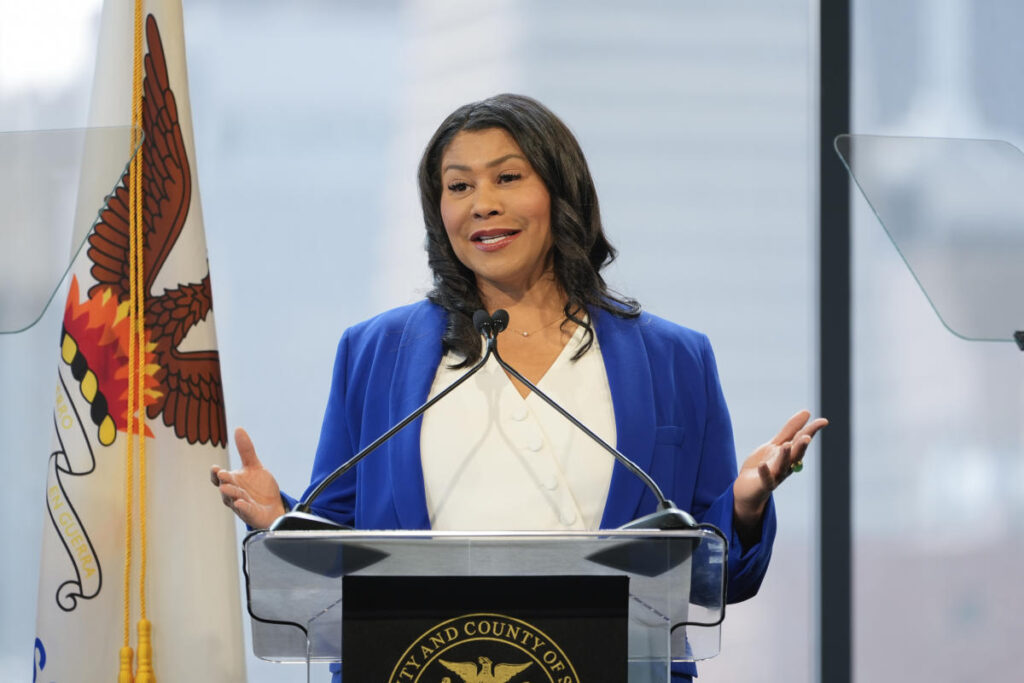When London Breed was elected as San Francisco’s first Black woman mayor, it symbolized a significant milestone in her journey from public housing to leadership within a city known for its progressive values. Initially, her election was seen as a beacon of hope reflecting the notion that any dream is achievable in a compassionate and equitable city. However, this promising beginning quickly faced challenges as the COVID-19 pandemic gripped the city. Businesses closed, tech workers began telecommuting, and a surge in homelessness and drug use emerged, which would soon overshadow Breed’s tenure. As San Francisco grapples with these ongoing issues, Breed is now in a competitive race for reelection on November 5, facing criticism from fellow Democrats who argue she has failed to address these persistent crises effectively.
In her bid for a second term, Breed encounters stiff opposition from four Democratic challengers who claim she has allowed San Francisco to deteriorate during her six years in office, often attributing her struggles to external factors rather than her administration’s actions. Critics accuse her of failing to respond adequately to rampant homelessness, erratic street behaviors, and the pleas for help from local businesses beset by crime. Prominent among her challengers are Mark Farrell, a former interim mayor with more conservative views, and Daniel Lurie, a wealthy philanthropist seeking to address economic disparities. The other two opposition candidates include Aaron Peskin, a liberal city supervisor, and Ahsha Safaí, known for his background as a labor organizer. The dynamics among these candidates illustrate the broader political contestation regarding San Francisco’s direction and leadership.
Despite increased visibility of homeless tent encampments and concerns regarding public safety, some improvements have surfaced under Breed’s leadership. Recent reports indicate that the city’s streets have seen a reduction in visible homelessness, and reported crime rates have also declined, although public safety remains a significant concern following high-profile incidents. Political analyst David McCuan noted that while Breed has advantages, including her incumbency, the growing dissatisfaction among voters regarding issues like crime remains a key concern that could undermine her campaign efforts. The upcoming election coincides with broader national controversies surrounding crime and public safety, which are influencing voter sentiments, especially after recent political shifts spurred by crime-related issues.
In a recent interview, Breed expressed optimism about her administration’s achievements and claimed that the city is on a path to recovery. She referenced two successful measures she championed to enhance public safety by expanding police authority and promoting drug rehabilitation efforts. Notably, she instituted a crackdown on homeless tent encampments following a Supreme Court ruling that allowed cities to enforce such bans. Breed highlighted the groundwork laid during her tenure, emphasizing ongoing infrastructure projects designed to bolster public safety. However, her opponents challenge these assertions, arguing that recent progress is not sufficient to outweigh the ongoing crises that have plagued the city.
Farrell and Lurie have criticized Breed’s leadership, claiming she fell short in maintaining cleaner streets and ensuring public safety. Farrell, who previously oversaw a short-lived term as interim mayor, articulated a vision for a city where residents feel secure without having to resort to private security measures. Lurie, presenting himself as an outsider capable of reforming bureaucratic inefficiencies, has emphasized the necessity for accountability within the city government. Each candidate, while having their strategies and critiques of Breed, shares a common concern for San Francisco’s future, with campaigning focusing on the city’s pressing challenges and the need for satisfactory leadership.
The campaign also reveals financial narratives that highlight the close ties candidates have with wealthy donors, with Lurie leading in fundraising efforts. Various controversies surround candidates, such as financial mismanagement accusations against Breed regarding her racial equity initiatives, and claims against Farrell regarding campaign financing compliance. Furthermore, critiques of Lurie’s unsuccessful affordable housing initiatives arise due to potential conflicts with labor unions and infeasibility of his nonprofit’s methods at the citywide level. As San Francisco prepares for a ranked-choice voting system in the upcoming election, these dynamics can lead to unexpected alliances, shaping the race’s outcome in unpredictable ways. Ultimately, the election results could redefine the prevailing narrative about San Francisco’s priorities and leadership direction in the face of complex urban challenges.

